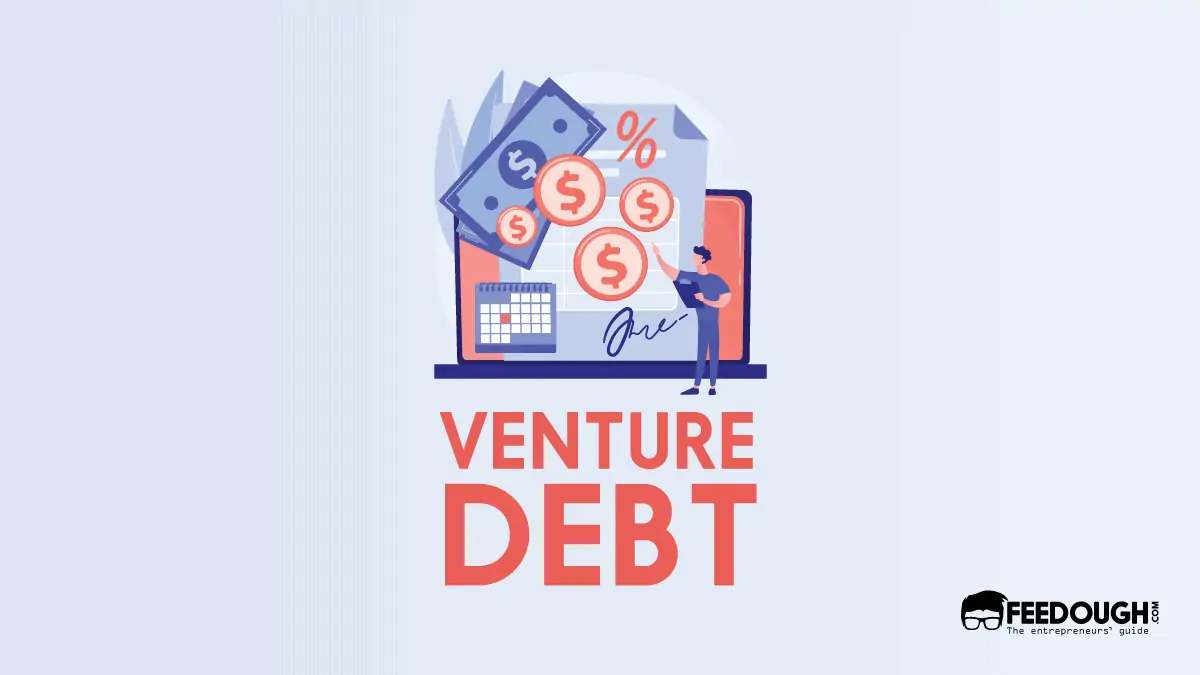Running a successful startup requires a lot more than just a great idea. It also involves a lot of money; and this money is generally sourced by taking loans (debt financing) or selling equity (equity financing).
While loans are preferred by entrepreneurs who don’t want to dilute their decision-making power, it is usually considered a significant liability that keeps the startup from climbing ladders with ease.
On the other hand, equity financing is usually a go-to-strategy for most founders to raise funding, get strategic guidance, and run a successful long-term startup.
But what exactly is equity financing, how it works, and what are its sources?
Let’s find out.
What Is Equity Financing?
Equity financing is the method of raising capital by selling the company’s shares in exchange for a monetary investment.
In simple terms, equity financing refers to selling a part of the company’s ownership. The person or persons who invest via equity financing are referred to as the company’s shareholders as they buy the shares and receive an ownership interest in the company.
The proportion of the ownership that is sold to the investor, however, depends upon the amount invested and the company’s worth.
For example, if the company’s post-money valuation comes out to be $100,000 at the time of the investment and the investor invests $40,000 in return for equity, he now owns 40% of the company.
Typically, startups prefer this type of funding over taking loans as
- Loans are considered to be liabilities that often slows down the startup’s growth.
- They are hard to get as startups operate in a highly risky business environment.
How Does Equity Financing work?
To sustain, grow, and expand, a startup requires additional capital that usually comes in in the form of equity financing.
Even though the term is a standard for selling company’s shares, equity financing works differently during different stages of the startup –
During the initial stages (pre-seed and seed funding round), when the startup valuation isn’t possible, equity financing witnesses the signing of convertible equity notes like SAFE, KISS, convertible notes etc. where investors invest in the startup in exchange for a right to get shares when the valuation is possible. Founders’ friends and family, angel investors, and accredited investors invest during such rounds.
In the other rounds (like Series A, Series B, etc.), when startup valuation is possible, other equity instruments like common stocks and preferred stocks are provided to investors like venture capitalists, angel groups, corporate investors, etc. in exchange for monetary investment.
All such equity offerings are counted as private equity and witness fewer restrictions and investment guidelines from regulators like the Securities and Exchange Commission.
Once the company gets large enough, it goes public and sells common equity to institutional and retail investors. Such equity offerings are available to all types of investors in a stock market and are considered to be safer as a body like SEC regulates them.
Importance Of Equity Financing
Capital is vital for a business to stay afloat. Equity financing brings in this much-required capital in the form of partnered ownerships and helps the company –
- Stay away from additional liabilities: Debts are liabilities that take interest from the working capital of the company. This prevents the company from working at its full potential.
- Raise the exact money required: Equity investments usually amount more than debt investments as they come with a reward of shares ownership. This helps the company raise more than it would have using debts.
Types Of Equity Financing
Generally, equity funding can be categorised into six types according to the type of contract signed. These are –
- Equity Investments: These are simple equity financing contracts where equity is provided in exchange for monetary investment by the investors.
- Mezzanine Financing: It’s a hybrid of equity and debt financing where the lenders provide the companies with a loan with specific terms that include repayment in the form of equity interest if cash flow isn’t available. In simple terms, the mezzanine lender has a warrant enabling him to convert the security into equity at a predetermined price per share if the borrower company fails to repay the loan on time or in full.
- Convertible Notes: Convertible note is a short-term hybrid-debt-equity-investment tool used to invest in early-stage startups that the investor can choose to convert into common shares at a later time or an event when it is easier to determine the company’s valuation.
- Royalty Financing: Royalty financing is equity financing in the future sales of the product. In this type of funding, the investors expect to receive a percentage of revenue received from the sale of the company’s offering(s).
- Equity Crowdfunding: This type of equity financing involves the company selling its shares to a crowd of people instead of one or a few key investors.
- Initial Public Offering: IPO takes place when the company goes public and lists its shares on a publicly-traded market like New Your Stock Exchange. It requires the company to comply with the guidelines established by the regulatory body of the country.
Sources Of Equity Financing
The different types of equity finance come from other sources. These are –
- Individual Private Investors: These investors invest in the business during the very early stages. They usually come under the FFF (friends, family, and fools) circle who trust the entrepreneur than the company.
- Angel Investors: These are high net-worth individuals who invest in high growth businesses in return for a share in the business. Along with monetary investments, these investors also contribute their expertise and network to help the business progress even more. Usually, angel investors use their personal funds for investments.
- Venture Capital Firms: Venture capital firms are professional investment firms formed by a group of high-net-worth investors, corporate firms, and other professional investors, that funds business ventures in exchange for an equity stake. Unlike angel investors, venture capital firms use money from the pool of funds collected from the group members. Such firms also have boards that make such decisions, and strategic teams that help the startup with its non-monetary requirements.
- Crowdfunding Platforms: Certain crowdfunding platforms like AngelList, CircleUp, Fundable, etc. act as an intermediary between the company and the group of lenders who provide monetary investment to the company in return for equity ownership.
- Stock Market: Stock market is a regulatory market that helps the company get public and offer it shares to be freely traded by the public.
Equity Financing Pros And Cons
Equity financing comes with its own set of advantages and disadvantages.
Equity Financing Advantages
- Comes With Less Risk: For businesses that struggle with positive cash flow, equity financing poses less risk as it doesn’t have to repay hefty interests every month.
- Doesn’t Require Certified Creditworthiness: Usually, debt financing requires a background check and is only possible if the borrower has good creditworthiness. Moreover, it’s not possible to raise a considerable amount as loans for a startup. Equity financing comes out as a rescue for such startups.
- Helps Maintain Good Cash Flow: With no interest repayment, the company makes use of its cash flow to grow its business and the value of its share.
- Is More Than Just Monetary Investment: Usually, by selling shares to industry experts also helps the company make use of such investors’ expertise, skills, and network for the good of startups.
Equity Financing Disadvantages
- Dilutes Ownership Rights: Selling out company shares in exchange for monetary investment dilutes the ownership and decision making authority of the founders.
- Shares Profits: Selling shares means the founders also have to share the profit amount with other owners depending upon the ownership percentage.
- Can Result In Potential Conflicts: Since decision-making authority is shared with other shareholders, this can result in potential conflicts if there are differences in vision, management style, and business running outlooks of different shareholders.
Equity Financing Vs Debt Financing
Both equity and debt financing come with their favourable and unfavourable terms that may suit or not suit the company.
Equity Financing | Debt Financing | |
|---|---|---|
Process Speed | Takes considerable time as the company is required to comply with all the regulations and it’s not easy to negotiate with the investors. | It’s faster when compared to financing through equity. |
Ownership Dilution | Requires the founders to dilute their ownership rights and share it with the investors. | Doesn’t involve dilution of ownership. |
Creditworthiness | Team’s past performance and ability matters more than the creditworthiness of the business. | It depends fully on the creditworthiness of the company or the individual who takes the loan. |
Effect On Cash flow | It doesn’t require the startup to pay periodic interests on investment so it doesn’t affect cash flow. | Debt financing requires the business to pay periodic interests on investment and affects cash flow. |
Go On, Tell Us What You Think!
Did we miss something? Come on! Tell us what you think about our article on equity financing in the comments section.
A startup consultant, digital marketer, traveller, and philomath. Aashish has worked with over 20 startups and successfully helped them ideate, raise money, and succeed. When not working, he can be found hiking, camping, and stargazing.









